Sleep is more complicated than we realise. Some of us go to bed thinking, “as long as I get 5 hours of shut-eye, I’ll be okay.” But in reality, we need much more. If we settle for shorter sleeping time, we can expect more problems than simple tiredness.
In this post, we will walk you through the different stages of sleep, the length of time each age group is recommended, and how to improve your sleep quality. We will also explain why long and restful sleep is essential to your well-being.
Table of Contents
What Are The Stages Of A Sleep Cycle?
When we sleep, we go through rest, dreams, and recovery stages. There are 5 phases in total, and each has an important job.
If you have a sleep tracking device, you may observe moments in the night where you are moving and other times when you are still. These processes are a physical representation of your sleep cycle.
Gaps in your sleeping cycle could explain why your brain feels foggy when you wake up or why you feel aches in your body. That’s why understanding your biological clock is the first step to a truly restful slumber.
Below, we will explain the 5 stages of sleep, how they manifest themselves, and why they’re so vital to our wellness.
Stage 1 — Light Sleep
During stage 1, our bodies begin to relax. The rhythm of our brain waves starts to slow as our mind prepares us for a gentle release.
You can expect this light sleep stage to last between 5 and 10 minutes. Your body begins to feel heavy as the desire to stay still and warm takes over.
But whilst your body is persuading you to relax, your mind may still be too active to shut away from the world. This means that even subtle disruptions — like noise or bright light — can awaken you and prevent you from getting through the first stage of the sleep cycle.
Power Naps Are Advised To Be No Longer Than 10 Minutes
Realistically, stage 1 of sleep is precisely what a healthy power nap should be. If you’re hoping to get a brief period of rest without entering into a deep sleep, you should keep your naps to 10 minutes or shorter. If you progress any further into the sleep cycle but wake up before it’s completed, you’ll end up with a foggy mental space.
The second reason to keep your power nap this short is so you can wake up effortlessly and carry on about your day. Stage 1 is the easiest sleep phase from which to rouse yourself, as your brain waves have only just begun to slow.
Stage 2 — Light Sleep (2)
As we drift into stage 2, our bodies enter a more subdued state; this includes slowed breathing, relaxed muscles, and a drop in temperature and heart rate.
Most importantly, our brain waves show a distinct new pattern. After about 10 minutes of rest, our brain waves are slow enough to resist noise and other external stimuli.
We stay in this second stage of light sleep for about 15 minutes, bringing our total rest to 25 minutes.
Sleep Spindles And Motor Memory
Although our brain waves are slowing, our eye movement may intensify during this stage. Whilst less dramatic as during the REM stage (which we will discuss later), it’s apparent enough that someone watching could point it out.
Along with these eye movements, our brains produce outbursts of activity. Scientists call these flare-ups “sleep spindles” due to their spindly or spiky appearance on ECG charts.
Experts believe that these bursts play a role in our motor memory. As we are still somewhat tethered to our physical self, these spindles allow us to connect to our body briefly to re-record our physical motions.
This stage is crucial for those learning physical skills, for example, babies, young children and those trying out new sports.
Stage 3 & 4 — Slow-Wave Sleep
Extremely slow brain waves characterise the following stages of sleep, from which it’s difficult to wake up — even with external stimuli. In these stages of slumber — which typically last 20-40 minutes — our muscles are wonderfully relaxed, and we enter the first phase of deep sleep.
We often go through multiple cycles of sleep in one night, allowing us to reconnect to our bodies and go to the toilet if we need to. As the night goes on, stages 3 and 4 become shorter, allowing us to enter REM sleep faster.
Muscles Relax and the Body Heals
At this stage, the muscles in our body become fully relaxed and limp. Our breathing rate and blood pressure also decrease, as does our body temperature.
Experts believe that this relaxation allows our body to repair itself and grow. Deep sleep can also bolster the immune system and other processes in our body. If you are ill, your body will keep you in this stage longer, which might result in a lowered REM stage and have a knock-on effect on your memory and concentration.
Keep in mind that being awoken during stages 3 and 4 can harm the healing process. To this end, you should do your best to avoid waking an ill person.
Stage 5 — The REM Stage
REM sleep is probably the most well-known stage of sleep, as this is when we dream. REM stands for ‘Rapid Eye Movement’, a common sign that someone is walking around dreamland.
The Importance of Dreams
Dreams are more than personalised movies. They help us battle conflicts that we would usually never be in and permit us to relive problems and find answers.
In short, dreams are a psychological phenomenon that helps us understand our daily lives. If you wake up before reaching REM sleep, you may find yourself hung up on a problem or emotionally distressed.
Long-Term Memory Storage
Apart from helping us face problems, dreams allow us to store our memories.
Scientists believe that REM sleep plays a vital role in our brains’ ability to learn and remember. Current research shows that our brain consolidates and stores information into long-term memories during this sleep stage.
In fact, scientists have studied people with memory problems before arriving at this conclusion. Look at dementia, for example. Dementia patients often struggle with REM sleep, and thus their memories are less coherent.
Similarly, as we age, the timing and duration of our sleep cycles will change. Older individuals usually experience a longer sleep cycle with less time in REM sleep, as opposed to infants who undergo shorter cycles with more time in the REM phase.
Try Not To Wake Up During REM Sleep
Since REM sleep has such a profound impact on your brain activity, you should avoid waking up during this phase. As we said before, you can find yourself getting emotionally distressed and exhibiting tumultuous behavioural patterns.
Crucially, on days filled with adventure, where you’ve seen new things and talked to new people, you should always allow yourself to rest well (this means no early alarms!). A complete sleep cycle will allow you to fully digest your previous day, store your memories, and understand what you have witnessed.
Sleep Paralysis
Unfortunately, REM sleep can be disturbing to people who suffer from Sleep Paralysis. The phenomenon occurs when muscles are effectively paralysed during the REM stage, but the mind regains awareness.
There is a wide range of causes for this sleeping disorder, but they tend to narrow down to two reasons – irregular sleep or stress.
If your mind finds it too difficult to work through your stress or anxiety, it will force you awake. If your sleeping pattern is irregular, your brain will become confused and arouse you.
Luckily, there are ways to establish a healthier sleeping pattern. First, you should learn the recommended amount of sleep for your age group; then, scroll down to our Make Sleep a Priority section and learn how to actively rebuild a natural sleep cycle.
How Much Sleep Do You Need?
Contrary to popular belief, not everyone requires 7-9 hours of sleep — the optimal duration varies for different age groups.
Newborns (0-3 months) — 14-17 hours Recommended Sleep
Newborns need a lot of sleep. Any parents will know this — and know it well. Although most experts recommend that newborns get 14-17 hours of sleep per day, 11-19 hours may also be appropriate.
Newborns need all this sleep to help their bodies grow, which mostly happens during deep sleep — in stages 3 and 4. Children in this age group don’t spend much time in REM sleep, as their bodies’ primary focus is physical development. In fact, the 1st, 2nd, and 5th stages all tend to take the same amount of time, whilst stages 3 and 4 tend to be longer.
With so much light sleep in their cycle, it’s still comically easy to wake a sleeping newborn. And because their REM phase is so short, they can often wake up grumpy.
Infant (4-11 months) — 12-15 hours Recommended Sleep
Infants require a bit less sleep than newborns, roughly 12-15 hours, although 10-18 hours may also be appropriate. At this age, children are growing more and learning new things every day. To help digest all the excitement surrounding their development, infants have a prolonged REM stage, which starts taking up more space in their sleeping cycle.
However, these children are still growing rapidly, which means they need ample time in the slow-wave stages, too.
If your child is in this age group, you may find that waking them up can be a challenge. That’s because the ratio of light sleep has decreased in favour of the deeper sleep stages.
Toddler (1-2 years old) — 11-14 hours Recommended Sleep
Toddlers seem to have a ridiculous amount of energy and aren’t easy to keep up with — this is why most parents breathe a sigh of relief when their little one goes to sleep.
Children of this age need 11-14 hours of sleep, although 9-16 hours might be fitting for some.
Whilst they might sleep less overall, at this stage, your toddler probably has more extended periods of uninterrupted sleep. With less “stop-and-start”, your child can easily go through the cycles with fewer breaks. This means they’re getting the same light and deep sleep ratios as their infant peers but in a smoother pattern.
Kindergarten (3-5 years old) — 10-13 hours of Recommended Sleep
As a child enters their kindergarten years, they start learning more than they ever did before. Whilst it’s essential that they attend classes, it’s just as crucial that they get enough sleep and help their brains absorb all the new information.
To this end, any child between 3 and 5 years old will need 10-13 hours of sleep, although anywhere between 8 and 14 hours is appropriate.
Children of this age will likely experience a lot of REM sleep as their mental abilities grow. Of course, they are still developing physically during this time, but their body focuses on motor skills, like writing. This means they will be spending lots of time in light sleep.
As your child lingers in light sleep, removing any stimuli from their bedroom is essential. If you leave toys, games, or other sources of excitement in your child’s room, they may struggle to reach deep sleep.
Junior School Age (6-13 years old) — 9-11 hours of Recommended Sleep
As a child progresses to Junior School, between ages 6 and 13, they will still need a significant amount of sleep to keep up with all the new information and experiences. This is a critical stage in a child’s development, so kids must get adequate sleep and promote memory retention.
Typically, children in Junior School require 9-11 hours of sleep, although 7-12 hours may be appropriate for some. If a child consistently struggles in school, their sleep pattern is the first thing to look into. However, if your child is getting the recommended amount of sleep, you should talk to your doctor about possible learning disabilities.
Although there could be many reasons for a child’s educational dip, sleep deprivation is often the main culprit. Explain to your child why they need to sleep more and encourage healthy sleeping habits.
Teen (14-17 years old) — 8-13 hours of Recommended Sleep
Although 8-13 hours is the recommended sleep duration for teens, it’s not unheard of for a teenager to spend half a day sleeping. In fact, teens’ sleeping habits tend to regress. That’s because teenagers go through a massive change physically whilst also dealing with a considerable amount of mental pressure.
Life-changing events like first loves, exams, and puberty all happen during this time. Since teens need to rest and recover, they spend more time in stages 3-5 and less time in light sleep. This pattern shift explains why teenagers are often hard to wake up.
Young Adult (18-25 years old) – 7-9 hours of Recommended Sleep
After 18, we no longer require quite as much sleep anymore. We can function well on 7-9 hours of sleep, although 6-11 is also appropriate. Our bodies are generally fully grown at this stage, so we can cut down on our stage 3 and 4 sleep patterns. Instead, we focus more of our energy on memory and brain function — which is why quality REM sleep becomes vital.
Adults (26+) — 7-9 hours Recommended Sleep
Adults require 7-9 hours of sleep. A recent study found that adults who sleep for 6 hours or less are more susceptible to cognitive degenerative diseases, such as Dementia and Alzheimer’s, later on in life.
The study’s findings suggest that the decline in mental health occurs specifically because a person doesn’t get the optimum duration of REM sleep. As we said before, REM sleep helps us digest information and emotion — without it, our memory and emotional intelligence will suffer.
To ensure adequate time in the REM phase, it’s always best to aim for at least 7 hours of sleep per night as an adult.
How To Maintain a Sleep Cycle
Maintaining a healthy sleep cycle is not always easy, especially with all the pressures of modern life. To help you establish a healthful sleep pattern, we’ve come up with a list of simple suggestions below.
Adjust Your Sleep Duration to Your Day-to-Day Productivity
An excellent way to gauge the success of your sleep cycle is to look at how your daily behaviours align with the quality of your sleep. If you’ve had a busy day full of physical or mental activity, allow yourself more time to recover at night.
Question Your Behaviours
If you find yourself becoming irritable, ask yourself why that is. Remember that a lack of quality sleep could be the answer.
Conversely, if you are racking your brain, trying to understand why your sleep hasn’t been good, spend some time analysing your nighttime routine.
Below are a few examples.
Have You Consumed Alcohol Before Bedtime?
Although alcohol is a depressant that tends to make you sleepy, that nightcap will probably do more harm than good to your sleep pattern.
The toxins in the drink cause your body to go into repair mode, so you end up skipping out on REM sleep. This lack of REM sleep will stop you from digesting your day, making you irritable, foggy, and unproductive.
Drinking Caffeine Late In The Day
Caffeinated drinks, like tea and coffee, can deliver a welcome energy boost in the morning. But if you drink these beverages 4 or fewer hours before sleep, you can expect the stimulating effects to still be in play when you go to bed. You might struggle to get past stage 1 of the sleep cycle, as your brain remains too active.
To avoid this problem, stop drinking caffeinated drinks 5 hours before bed.
Do You Have A History Of Sleeping Problems?
Sometimes, nothing in your daily life can explain your sleeping issues. Instead, you could be suffering from a medical problem, such as a hormone imbalance, insomnia, or sleep apnoea. Contact your doctor if you believe that this may be the root cause of your sleeping problems.
Do You Feel Energetic?
If you feel energised throughout the day, find exercise refreshing, and don’t feel sleepy until nighttime, then this is a sign that your sleep quality is good.
However, if you are desperate to nap and cannot be bothered with routine tasks, this is your wake up call. Your body is in desperate need of quality sleep.
Make Sleep A Priority
Making sleep a priority might sound insane in the busy, modern world we inhabit. However, prioritising healthy sleep is critical from a health perspective.
Below, you’ll find a few things you can do each day to boost your sleep quality. Remembering and following through with these tips could make a world of difference. To help you remember our suggestions, go ahead and bookmark this page.
Stick To The Same Sleeping Schedule Daily
Life is unpredictable, and sometimes it feels impossible for us to maintain a set bedtime schedule, but doing so is vital.
Sticking to a sleep schedule over time helps us establish a circadian rhythm — or biological clock — making it easier and easier to rest at night.
Set a bedtime, and stick to it daily. Soon, your body will know when sleep is near and will fall into a corresponding, calming rhythm.
Create A Relaxing Bedtime Routine
Crafting a relaxing bedtime routine can help us wind down.
If you attempt to sleep after watching a stimulating film or chatting with friends, you will still be thinking about the scenes played out in front of you. As you go to bed, your mind will be racing.
Instead, it would help if you did your best to slow down a couple of hours before bed. Doing so will promote and encourage relaxation.
You can invoke this level of calm by drinking a relaxing beverage, like chamomile tea, or having a long, warm bath while listening to classical music. Alternatively, you could try reading a slow-paced book.
Create A Relaxing Environment
Similarly, your immediate environment should also be relaxing. Stressful surroundings will only make it harder to sleep. Noise, conflict, lights, and so on can be stressful, and this tension will keep you awake.
Choose the Right Mattress
If you find that your mind and body wants to sleep, but your bed is too uncomfortable, then it might be time to upgrade your mattress.
Your mattress should be supportive and comfortable, propping you in place as though you’re lying on a cloud.
Everyone enjoys different levels of firmness and softness, so consult a mattress specialist to find the optimal mattress type.
Disconnect From Electronic Devices 30 Minutes Before Bed
Turn off electronic devices, such as televisions, mobile phones, laptops, and tablets, at least 30 minutes before bed. Ideally, though, you should be “disconnected” an hour before bedtime.
These devices emit a blue light that can make our brains wake up instead of going to sleep.
Now, some devices have a setting that eliminates blue light. This setting can be helpful for those who have no choice but to use electronic gadgets before going to bed.
The Benefits of Maintaining A Healthy Sleep Cycle
We all know that insufficient sleep makes us cranky and irritable. It can affect our mood, our energy levels, and make us eager to get back into bed again. However, getting a good night’s sleep and maintaining a healthy pattern in the long term has more benefits than just a good mood.
Sharper Brain
When we’re running on little sleep, we typically find that our memory gets cloudy, and we might struggle to hold onto information and recall details.
Without proper REM sleep, our ability to process and store memories properly is reduced. When your brain is sleep-deprived, it is like a computer that’s low on storage. It works slowly, there’s not enough space, and it keeps showing an error message.
Having enough sleep is like cleaning your computer. It restores your brain, so you are ready for whatever is ahead.
Improves Moods
Sleep — particularly the REM phase —- impacts our ability to process emotions.
If you’re not getting enough REM sleep, you will struggle to process your emotions appropriately and experience mood swings.
If you suffer from insomnia, you are 5 times more likely to have other mental health struggles. These include depression, panic disorders, and general anxiety.
Quality sleep is like a reset button that can put you in a better mood, allowing you to handle stress and emotions better.
Healthier Heart
Our brains are not the only ones that benefit from healthy sleep — our hearts do, too. Since our blood pressure drops when we sleep, our blood vessels and heart have time to rest.
If you don’t get these restful moments, your blood pressure will remain high longer than it should. If this happens regularly, poor sleep quality could contribute to a stroke or heart disease.
On the other hand, if you have a healthy sleeping pattern, the likelihood of cardiovascular illnesses decreases.
Athletic Fitness
If you participate in endurance sports, poor sleep will be an issue. Not only does sleep loss steal your energy and muscle repair time, but it also drains your motivation. What’s more, you’ll face challenges around your mental and physical abilities as your reaction times slow down.
Getting a night of restful sleep will allow your muscles to repair themselves and improve your cognitive abilities the next day.
Immune System Is Stronger
Deep sleep, in particular, helps to bolster the immune system.
This system within your body finds and destroys harmful viruses and bacteria, helping you ward off illness. If you continually have restless or incomplete sleep, your immune system’s working time will be depleted.
Both you and your immune system will be exhausted, to a point where the antibodies can’t do their job.
A good night’s rest will help your immune system keep you safe.
You Can Control Your Weight More Effectively
A good night’s sleep helps your brain process and store information. We have said this several times now, but it also applies to your appetite.
If you sleep well, your body will understand how much you have eaten in the day and send appropriate signals to your stomach. These signals inform your digestive system that no more food is needed for a while – thereby reducing your cravings.
Without this system in place, your desire for unhealthy or unnecessary foods will increase. This, in turn, leads to weight gain, diabetes and other related issues.
Summary
Sleep has a much more significant impact on our lives than we realise. It contributes to multiple aspects of our health and well-being.
Getting a good night’s sleep can impact mental health, fitness, mood, weight control, brain function, and immune system.
Creating a sleeping schedule, disconnecting from technology, and avoiding caffeine 5 hours before bed are simple ways to ensure quality rest.
When it comes to the length of sleep you need, that depends on your daily lifestyle and your age group. On average, we recommend 7-9 hours of sleep for adults.
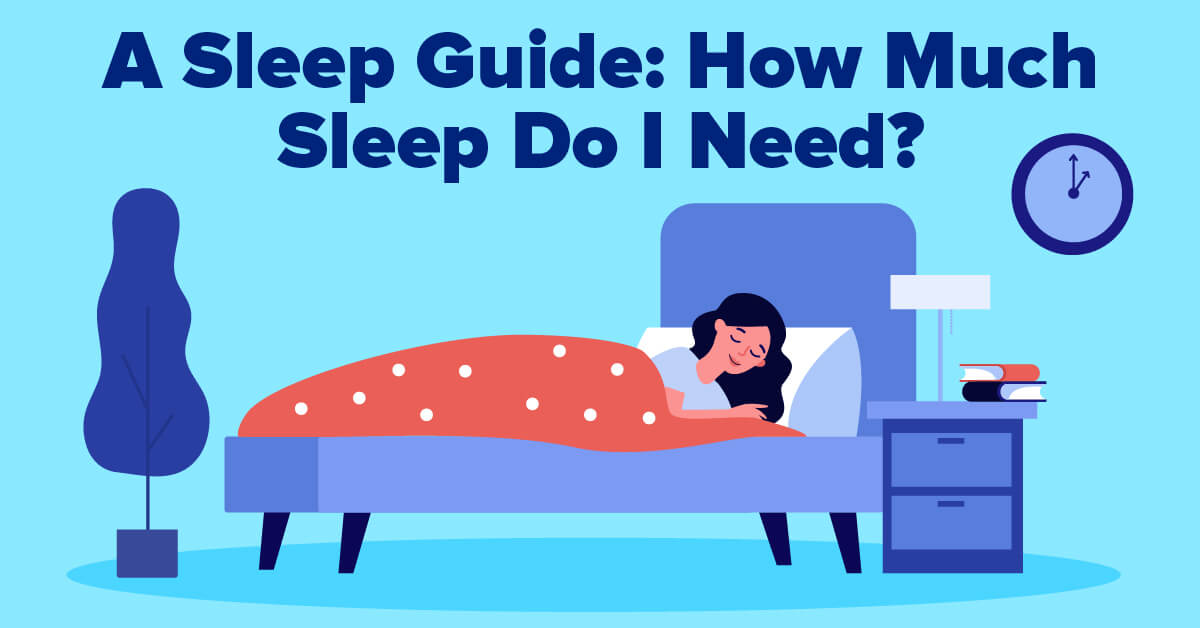
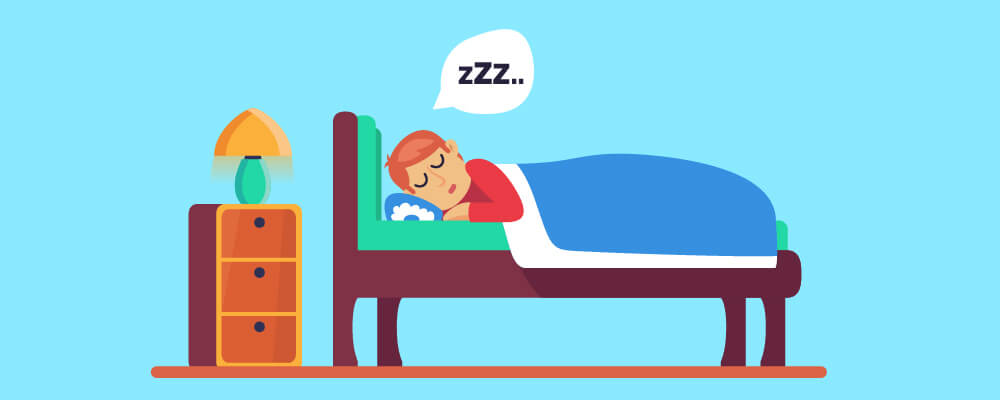
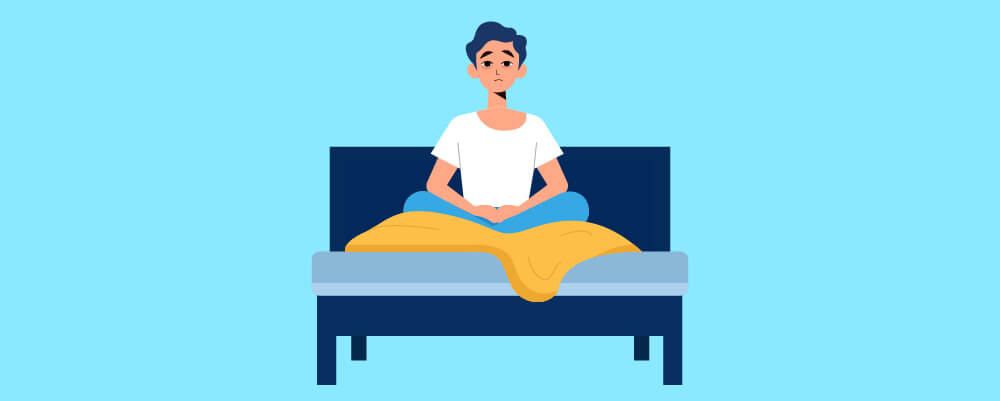
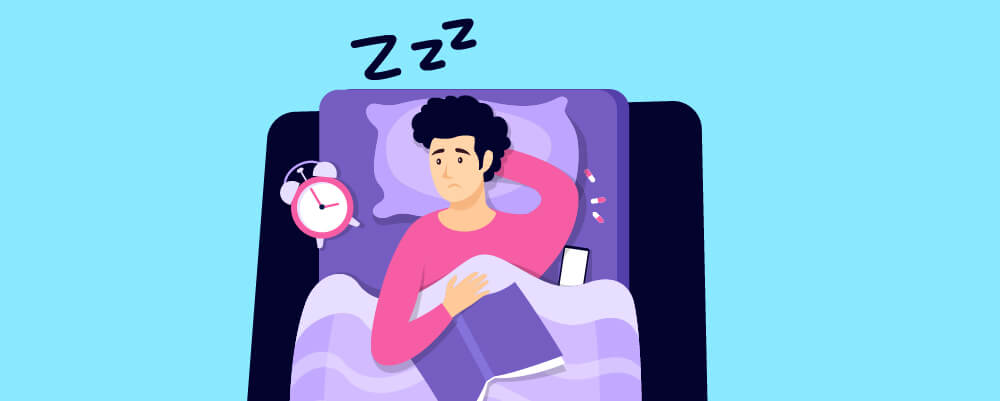
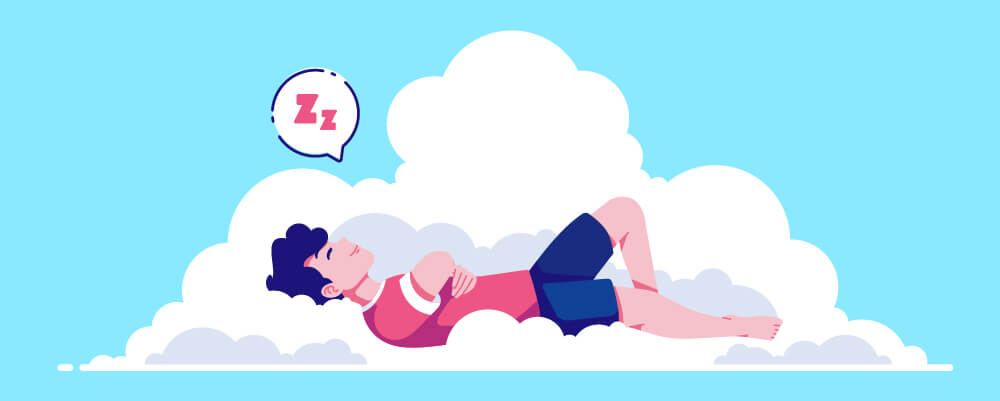
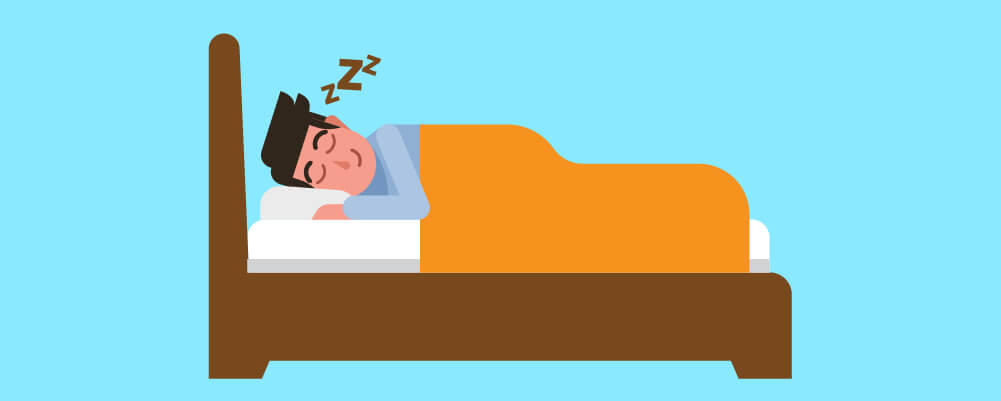
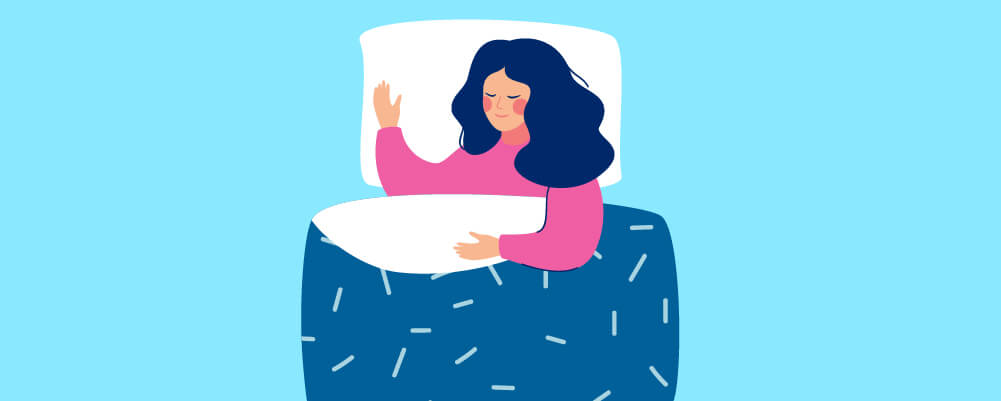
Comments (0)